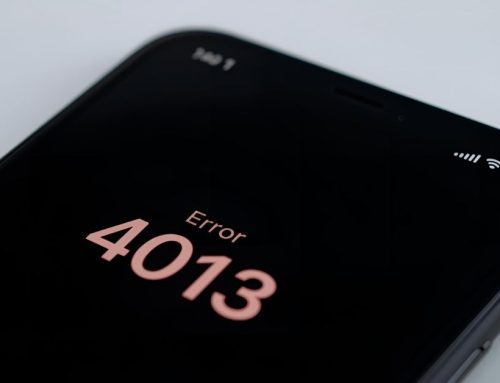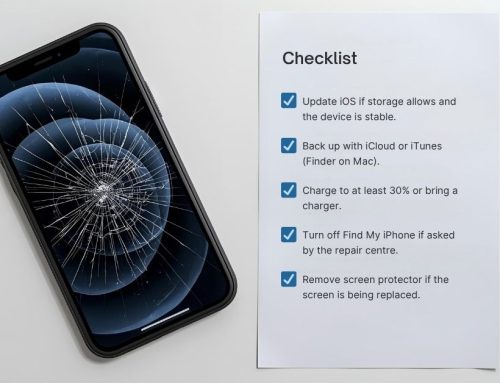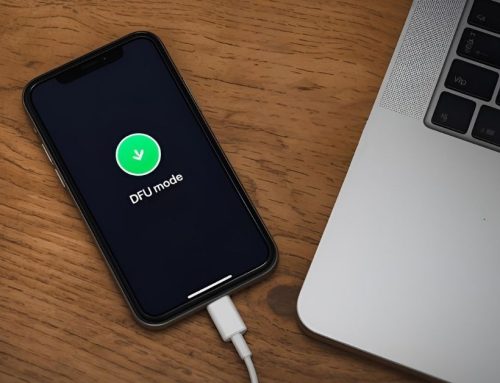Your smartphone can play a vital role in smartphone health monitoring by helping you maintain and improve your wellbeing with the right tools and tips. Start by downloading apps like Google Fit to track daily steps and Heart Points based on WHO guidelines. Set personalised fitness goals and sync your data with other health apps for a more comprehensive smartphone health monitoring experience. Use mental health apps such as Headspace to manage stress and monitor your mood effectively. Stay updated with credible health information from trusted sources like the CDC and WHO.
Google Fit Overview
For effective smartphone health monitoring, Google Fit offers a comprehensive health tracking tool that provides personalised coaching and activity monitoring right on your Android smartphone. It customizes advice based on your activity levels and heart rate, helping you set manual fitness goals easily. With Google Fit, you can track daily step counts and Heart Points, calculated following WHO guidelines. Plus, it syncs with other apps to enhance your smartphone health monitoring by covering a wide range of health metrics.
Installing Google Fit
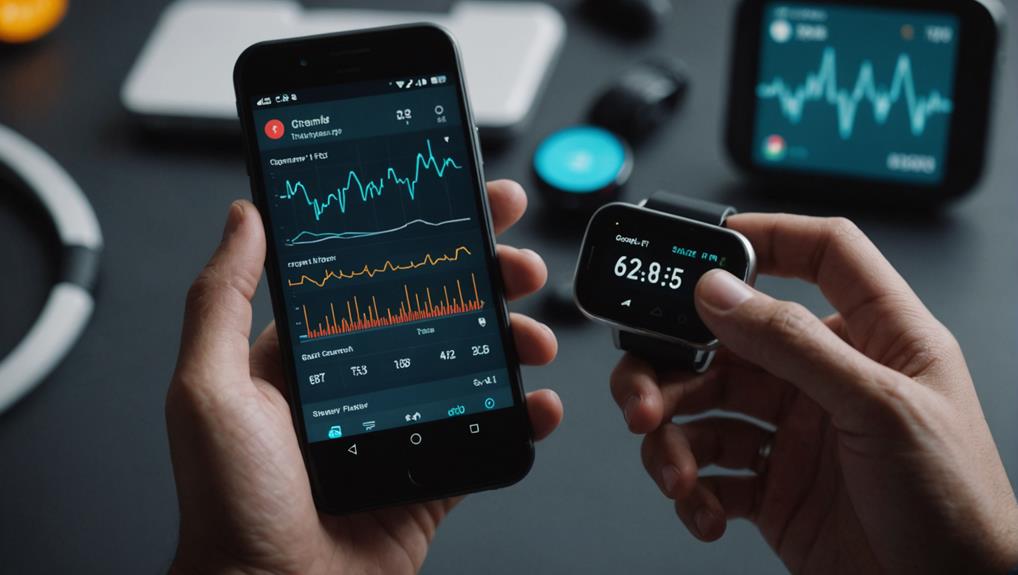
To install Google Fit, head to the Play Store on your Android smartphone and search for the app. Make sure your operating system is up-to-date for optimal performance. Once installed, you may need to create a user account for full integration with manufacturer-specific health apps. Google Fit is often pre-installed on newer Android devices, making setup even more straightforward. Enjoy comprehensive fitness tracking!
Google Fit Features
Explore the powerful features of Google Fit that make smartphone health monitoring simple and effective. Receive personalized coaching based on your activity and heart rate to help you reach your fitness goals. Track daily steps and earn Heart Points aligned with WHO exercise guidelines. Set custom fitness targets and seamlessly integrate data from multiple health apps, enhancing your overall smartphone health monitoring experience. Google Fit lets you tailor your wellness journey with ease and precision.
Data Privacy in Google Fit
Your personal data stays secure with Google Fit’s stringent privacy measures, ensuring it is not shared with third parties. You control access to sensitive information and can revoke it at any time by uninstalling the app. Google Fit complements your doctor’s advice; it does not replace it. Enhance security by maintaining strong passwords. This empowers you to manage your health data with confidence and privacy.
Google Fit Compatibility
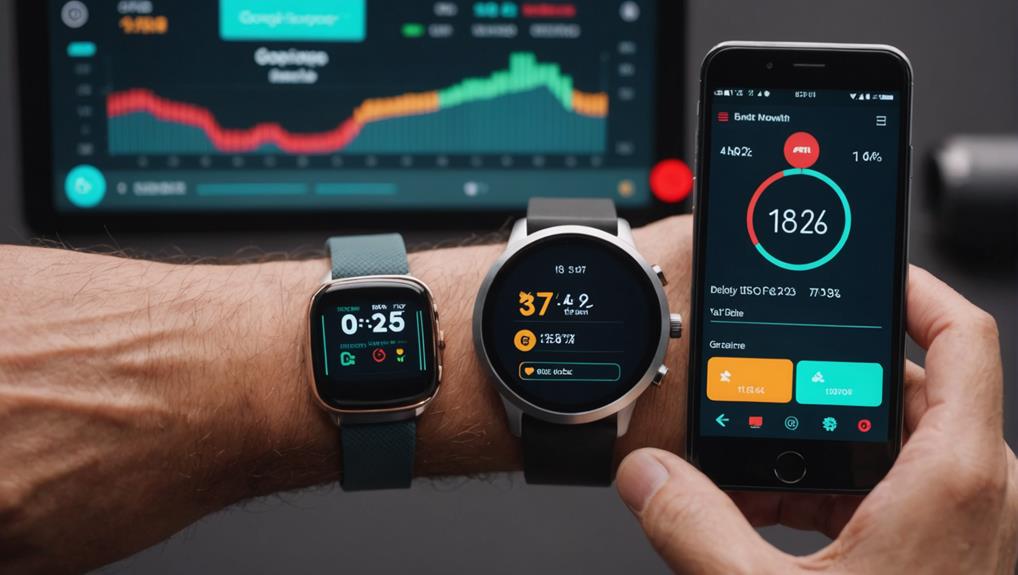
Google Fit is compatible with both Android and iPhone devices, though certain features work best on Android. It syncs seamlessly with a range of fitness apps, providing you with a centralised spot for all your health data. To get the most out of Google Fit, ensure your device’s operating system is up to date.
Supported Devices and OS
Google Fit enhances smartphone health monitoring on Android smartphones less than three years old, requiring the latest OS for peak performance. iPhone users can also benefit from Google Fit, though some features may be limited. The app integrates with a variety of fitness and health apps, enabling comprehensive smartphone health monitoring across platforms. A Google account is necessary to sync with manufacturer-specific health apps, enhancing your overall health tracking experience.
Key Features Overview
Google Fit offers essential features that simplify smartphone health monitoring on both Android and iPhone devices. Set manual fitness goals, track daily steps, and earn Heart Points based on WHO exercise guidelines. Sync your data with multiple health apps for a full picture of your wellness. Utilize the health journal to monitor your progress, all while keeping your data secure and private for confident smartphone health monitoring.
Essential Health Apps
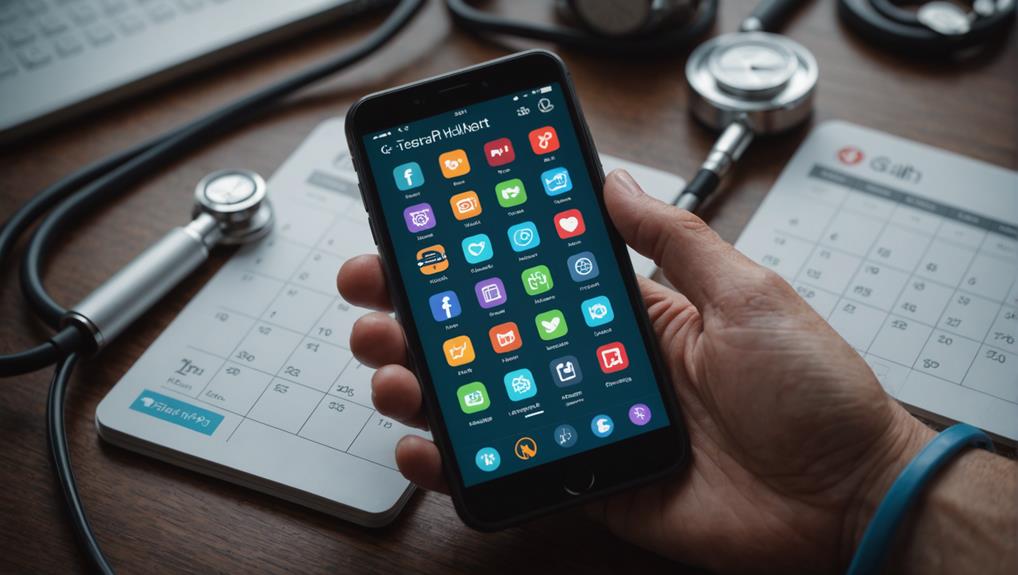
Incorporating essential health apps like iBP Blood Pressure and Sleep Cycle into your daily routine can significantly enhance your overall well-being. Effortlessly monitor blood pressure and track sleep patterns. Use Instant Heart Rate for quick cardiovascular checks. Manage diabetes with MySugr and gain insights into menstrual health with Clue. These apps empower you to take control of your health with precision and ease.
Setting Fitness Goals
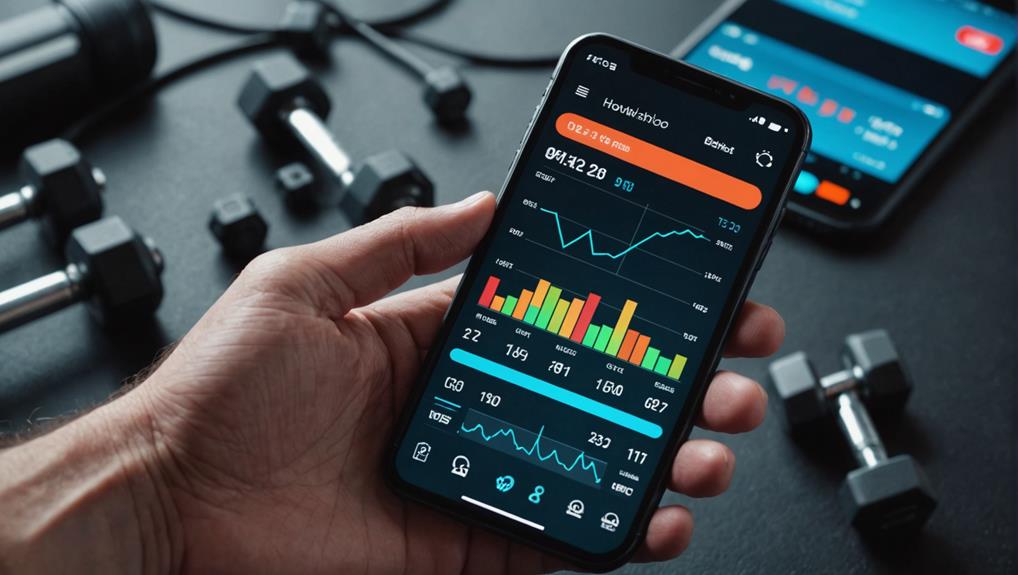
Setting fitness goals using the SMART criteria can transform your workout routine into a structured and achievable plan, boosting your motivation and progress. Apps like Google Fit help you set personalised targets, track your steps, and monitor Heart Points. Regularly adjust your goals based on performance trends. Add reminders for workouts and hydration, and engage with fitness communities for shared motivation.
Accessing Health Resources
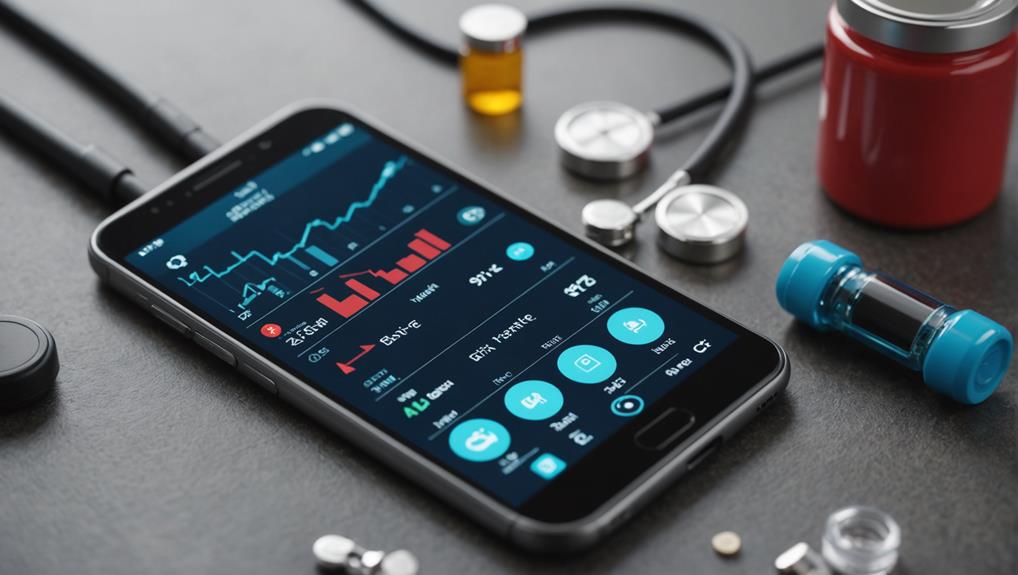
When accessing health resources on your smartphone, it’s crucial to rely on credible sources to ensure the information is accurate. Look for apps that regularly update their content to reflect the latest wellness trends and guidelines. By choosing reputable apps, you’ll stay informed and make better decisions for your health.
Reliable Health Information Sources
Accessing reliable health information is crucial for making informed decisions about your health. Trust resources like the CDC and WHO for evidence-based guidelines. Peer-reviewed journals provide validated research, while apps like HealthEngine connect you with qualified practitioners. Local clinics and health departments offer tailored educational materials. Always cross-reference multiple credible sources to ensure a thorough and accurate understanding.
Credibility of Online Resources
To ensure you’re accessing accurate health information online, prioritise sources from reputable government health departments, educational institutions, and recognised medical organisations. Always check the author’s credentials and verify claims with peer-reviewed studies. Be cautious of sites lacking transparency or clear authorship. Use fact-checking services to confirm sensational claims. Scrutinise sources for credibility and reliability.
Latest Wellness Trends
With the rise of health-related apps and wearable technology, you have instant access to nutrition tracking, exercise monitoring, and the latest wellness trends right at your fingertips. Apps like MyFitnessPal and Strava enable you to make informed choices, while real-time data collection enhances accuracy. Continuous updates and community support features keep you engaged and motivated, ensuring you stay on top of your health goals.
Social Fitness Connectivity
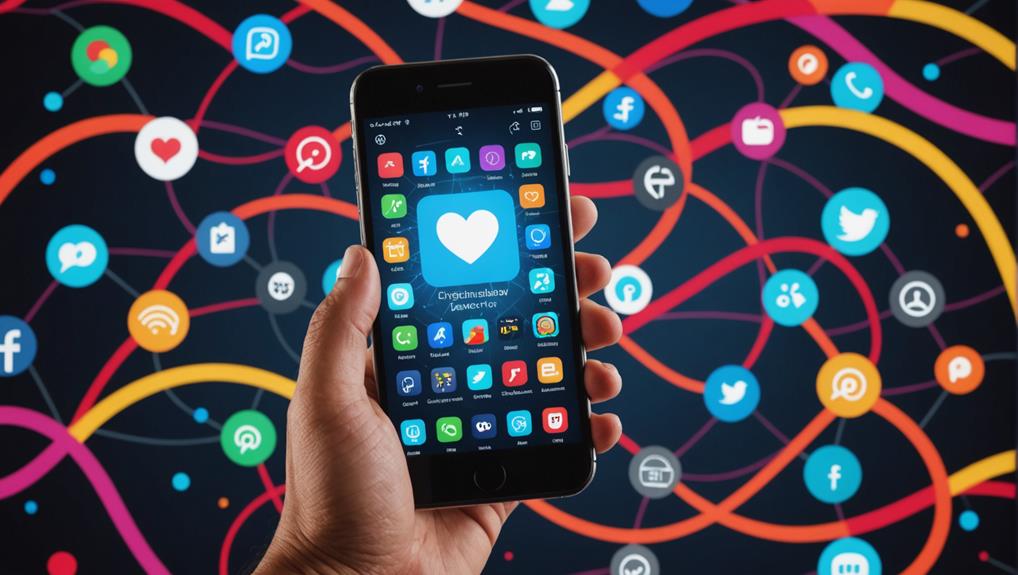
Engaging in social fitness connectivity can elevate your smartphone health monitoring experience by linking you with friends and fitness communities. Apps like Strava and Nike Training Club enable you to share workouts, join virtual challenges, and compete on leaderboards. This not only boosts motivation through shared goals but also adds accountability and emotional support. By incorporating social features into your smartphone health monitoring routine, you’ll find it easier to maintain exercise habits and reach your fitness goals.
Mental Health Apps
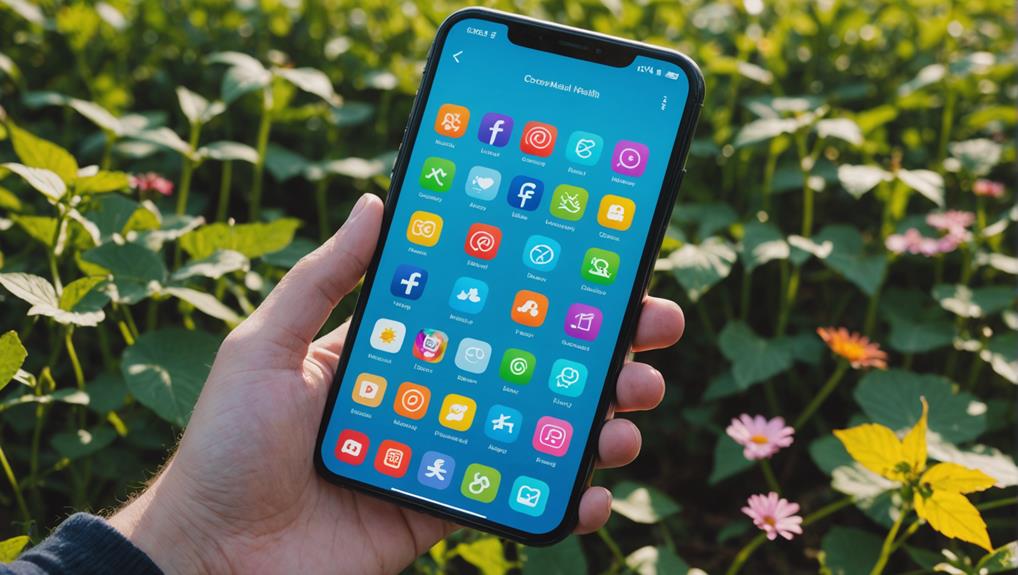
You can use mental health apps to manage stress and track your mood with ease. With tools like guided meditations and mood journals, these apps offer practical ways to enhance your emotional well-being. Apps like Headspace and Moodfit make it straightforward to incorporate mindfulness and gratitude into your daily routine.
Stress Management Tools
Ever considered how mental health apps might assist in managing stress and enhancing your emotional well-being? Applications such as Headspace and Calm provide guided meditations and mindfulness exercises designed to alleviate anxiety. BetterHelp connects you with licensed therapists for flexible online counselling. Community support features within these apps cultivate a sense of belonging, boosting motivation and accountability, making them invaluable for stress management.
Mood Tracking Features
Utilising mood tracking features in mental health apps allows you to record your emotions daily, aiding in the identification of patterns and triggers over time. Apps like Moodfit and Sanvello offer graphs to visualise mood trends, making emotional fluctuations more apparent. Customisable reminders ensure consistent tracking, while mindfulness tools and coping strategies enhance stress management. Sharing your data with mental health professionals can lead to more informed therapy sessions.
Final Thoughts
To maintain your smartphone’s health, start using Google Fit. Install it effortlessly, explore its features, and ensure your data privacy. It’s compatible with numerous devices and helps you set and achieve your fitness goals. Access valuable health resources and connect socially for added motivation. Additionally, explore mental health apps to support overall well-being. With these tools, you’re set to lead a healthier lifestyle directly from your smartphone.
Frequently Asked Questions
What is smartphone health monitoring, and why is it important?
Smartphone health monitoring refers to the process of using your mobile device to track, manage, and improve your health. This is increasingly important as more people rely on their smartphones for health-related tasks. By utilising various health apps and tools, you can monitor your health information, including physical activity, heart rate, and sleep patterns. This not only helps in managing chronic conditions but also promotes overall well-being and can lead to better patient outcomes when shared with healthcare providers.
What types of apps are available for monitoring health?
There are several types of apps designed for monitoring health. Some popular categories include health tracking apps, diet and nutrition apps, fitness apps like Google Fit, and mental health apps. Each of these mobile apps offers unique features tailored to different health goals, from tracking physical activity to managing health records. Many of these apps also integrate with your smartphone’s built-in health app to provide comprehensive insights.
How can I use my smartphone to track physical activity?
You can track your physical activity using various apps and tools available on your mobile device. Most modern smartphones come with built-in sensors that can monitor steps, distance, and even heart rate. Apps like Google Fit or health apps provided by your smartphone’s operating system can help you set fitness goals and track your progress over time. Many of these apps provide visualisations of your activity data, making it easier to stay motivated and accountable.
What are the benefits of using a health app?
Using a health app offers numerous benefits, including personalised health insights, reminders for medication or appointments, and easy access to your health records. Many apps can sync with healthcare providers to share vital information, which can significantly improve patient outcomes. Additionally, they often come with features that help you establish and track health goals, making it easier to maintain a healthy lifestyle.
Are there any specific tools to help monitor my smartphone’s health?
Yes, there are various tools designed to monitor your smartphone’s health, such as built-in diagnostics apps, third-party apps like AccuBattery, CPU-Z, and Device Care. They track battery performance, storage, and system health.

